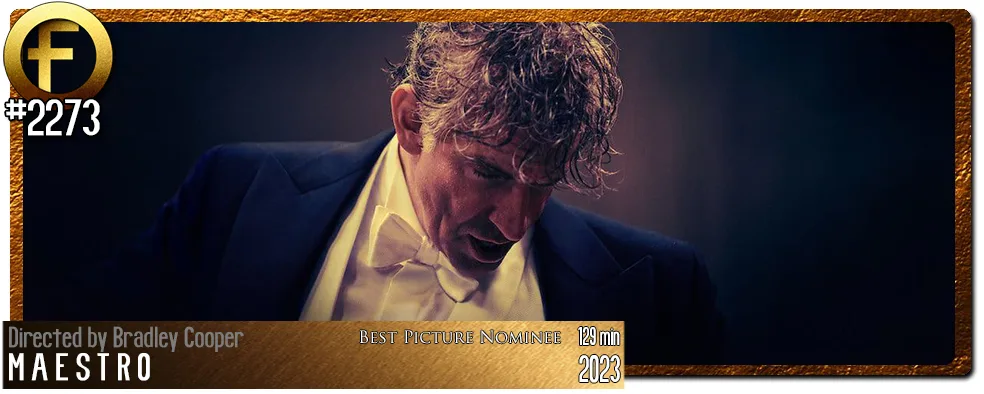Movie Review – Maestro
Principal Cast : Bradley Cooper, Carey Mulligan, Matt Bomer, Vincenzo Amato, Greg Hildreth, Michael Urie, Brian Klugman, Nick Blaemire, Mallory Portnoy, Sarah Silverman, Yasen Peyankov, Zachary Booth, Miriam Shor, Maya Hawke, Gideon Glick, Josh Hamilton, Alexa Swinton, June Gable.
Synopsis: This love story chronicles the lifelong relationship of conductor-composer Leonard Bernstein and actress Felicia Montealegre Cohn Bernstein.
********
I recall fondly the nostalgic video that does the rounds time to time of a young pre-fame Bradley Cooper sitting in the audience of an episode of Inside The Actors Studio (hosted by the late James Lipton) watching on all starry eyed – the guest at the time was Robert DeNiro – and wondering if you’d told that up-and-coming actor he’d be nominated nine times for an Academy Award by the time 2024 rolled around, most likely he’d have scoffed loudly. But it’s true: at the time of writing this review, before the nominations for the 2023 Academy Awards have been announced, Cooper has found himself in Oscar’s glare numerous times, three times for Best Actor (Silver Lining’s Playbook, American Sniper and A Star Is Born), still without a win. Maestro, although lacking the heart-fluttering pop-culture power of him wooing Lady Gaga, is another tilt for the Academy’s top honour, a supremely confident directorial effort and a really good lead actor turn giving the popular Hollywood ace a legitimately prominent vehicle with which to finally snare his dream. Cooper plays legendary American composer Leonard Bernstein, opposite a shattering performance from the luminous Carey Mulligan as Bernstein’s long-suffering wife, and although I suspect the film plays better to an art-house crowd than it would casual audiences, works superbly with my inbuilt bias to all things Hollywood.
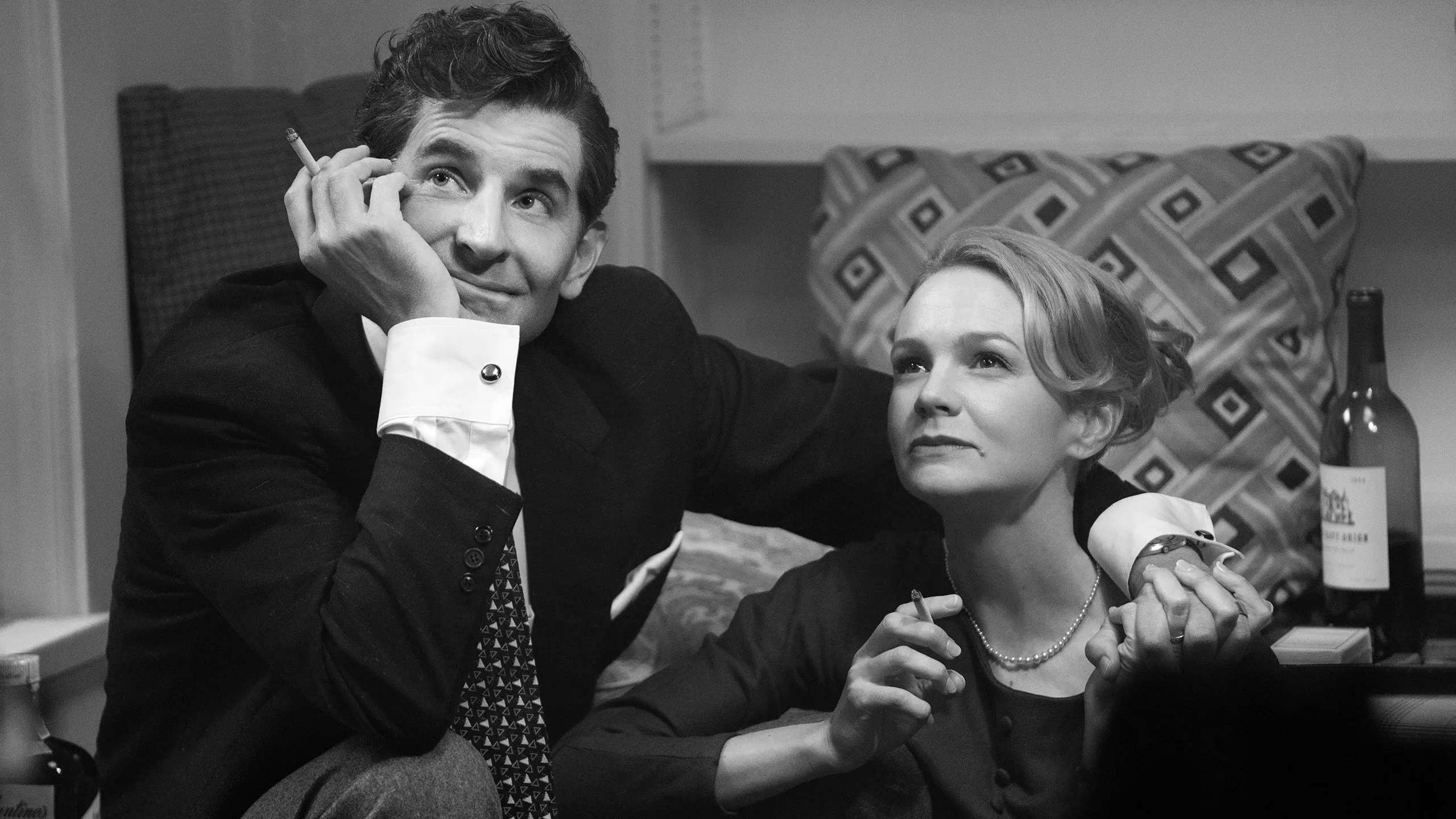
I would suspect if you asked ten thousand people today who Leonard Bernstein was you’d have a success rate of under ten percent. To some, the composer was best known for his classical works Candide and Mass, a renowned Gustav Mahler fan, and the first US-born conductor of the New York Philharmonic at just 25 years of age. To the vast majority of pop-culture connoisseurs, Bernstein is perhaps best known for composing the music to West Side Story, with Stephen Sondheim’s lyrics and Jerome Robbins’ choreography. His early career was hindered by a problem of homosexuality, however, which meant that to be given any chance of success he had to “go straight”, marry a nice young woman – Felicia Montealegre, played by Mulligan – settle down and have kids. Felicia, an actress herself, gives over her career to support Leonard and their family, including eldest daughter Jamie (Maya Hawke), although Leonard’s continued affairs with both music students and other men in his circle fracture their relationship. Maestro recounts pivotal moments in Bernstein’s career and life, dramatized for effect, and create an intimate portrait of a man struggling with his own interests at the expense of his relationships.

Maestro sits right inside one of my favourite genre of film. Truth be told, it sits right inside the wheelhouse of Hollywood’s favourite genre: itself. Bernstein was a titan of 20th Century American music, a legendary figure akin to Gershwin and Copland, perhaps only overshadowed in my personal compositional vocabulary by John Star Wars Williams himself. When Hollywood – nay, when the American entertainment industry itself – turns its attention to its own storied history, more often than not magic happens, and Maestro – while perhaps not quite the magic of Bernstein’s magic themes from West Side Story – is a classy, esoteric, enthralling look at one of the bright shining lights of the last hundred years. Although not an EGOT winner, missing out on a competitive Oscar for 1954’s On The Waterfront, he would snag innumerable Grammys, seven Emmys and two Tony awards through his lifetime, landing him as one of the all-time greats in his field. It makes sense, then, in this era of gritty warts-and-all biopics, that the great man would find his life under the microscope in this methodical, stylish, highly stylised endeavour from Cooper, who also co-wrote with Josh Singer as well as directing and acting, and the result is an amazing film of substance nearly trumped by style.
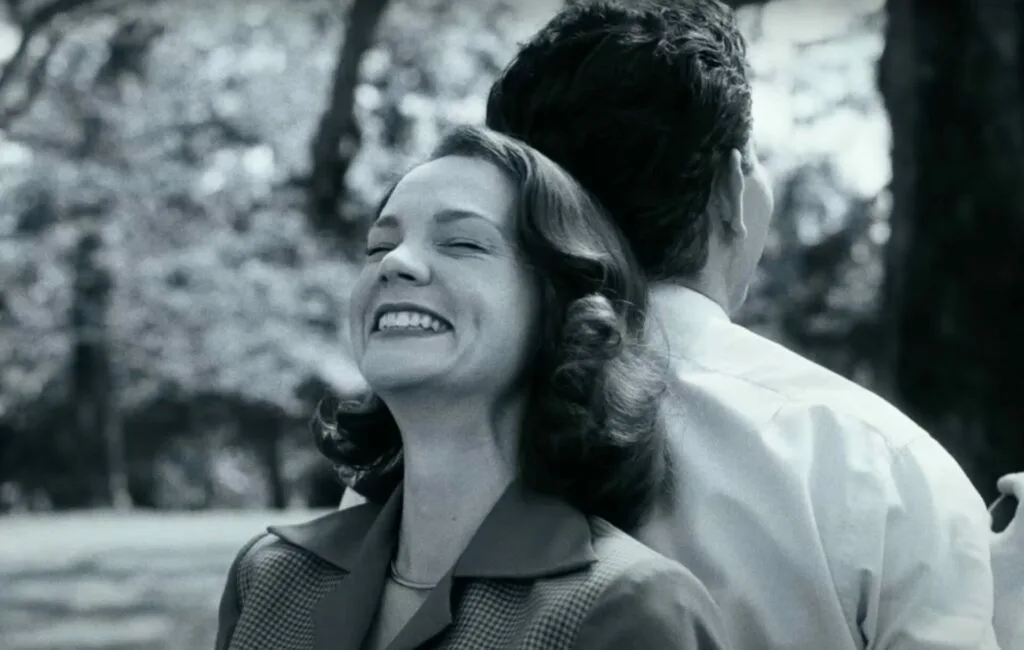
Shot primarily in the Academy’s square aspect ratio by cinematographer Matthew Libatique, and bookended by traditional 16×9 footage, Maestro is a carefully constructed examination of Bernstein’s life through the lens of those who knew him best, but primarily through Carey Mulligan’s Felicia, Leonard’s wife. Mulligan, far moreso than Cooper it must be said, absolutely shines in this, delivering powerful feminism, matriarchal nuance and heart-breaking sincerity as Felicia navigates her husband’s surprisingly indiscreet dalliances with young boys he teaches as students; the film deliberates on Leonard, but it is intuitively Felicia through and through. Cooper, as Leonard, sports a number of exquisite prosthetic headpieces as he ages through the film, most notably a far more Jewish nose than the actor typically sports, and I have to say it’s amazing just how subtle the effect is. Cooper really inhabits the part, disappearing into his performance as Bernstein with the aid of this makeup work (and some subtle de-ageing in the early part of the film). It doesn’t feel like your typical biopic, however – no, this ain’t The Music Lovers, that’s for sure! – in that Cooper turns what might have ordinarily been a fairly predictable “difficult artists deals with his family realising how awful he is” tome into a captivating and gorgeously mounted dramatic work that more than delivers on the complexity of Bernstein’s life. Again, I’m biased to enjoy this kind of film mainly because I’m interested in Bernstein’s work as a composer (and especially West Side Story), so I have a skewed interest in this film’s success. It would be wrong of me to suggest, however, that everyone will enjoy this one.
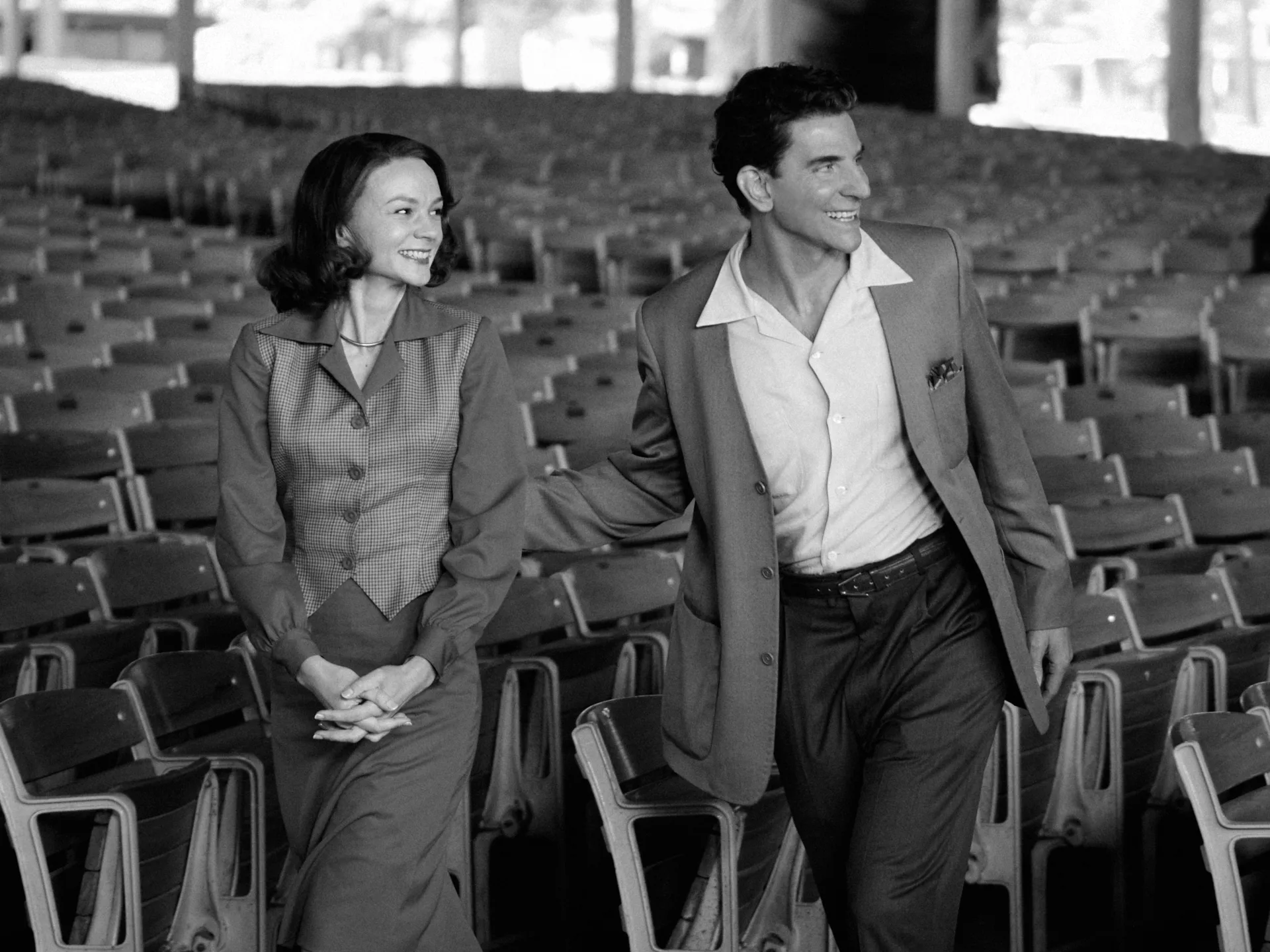
Maestro is a difficult film to recommend because it’s so weirdly constructed. The editing, the camerawork, the style of delivery and the tone of the film all elicit thoughts of basement screening rooms and smoke-fuelled philosophy majors discussing the profound subtext of Leonard’s proclivities, a mix of French New Wave and razor-wire modern techniques that elicits a peculiarity I think most people will baulk at – certainly my wife remarked at the end that she would have enjoyed it more had it been “made normally”. By that she’s referring to Cooper’s directorial choices to utilise black and white film mixed with colour, bizarre angles and tension-filled long takes, something most modern Hollywood fare seems to avoid. Remarkably, Maestro is perhaps closer in style to Andrew Dominiks’ Blonde than any other film in the last few years, although thankfully without such controversial content. As somebody who has appreciated cinema from all styles and types I actually enjoyed Cooper’s flamboyancy behind the camera, and can see how it is designed specifically to tap into the Academy’s inbuilt bias about itself and its art. The film (unsurprisingly) uses Bernstein’s most famous compositions as part of its score, as well as pieces by Mahler (the replication of Bernstein’s 1973 performance of Symphony Number 2 in C Minor in Ely Cathedral is an aural masterstroke), Beethoven and William Walton, and it’s rare that a film utilises music to accompany the imagery so astutely as this film does, drawing out emotional content over and above the visuals provided to provoke an even greater impact. But I can’t see “general” audiences liking this one, or even enjoying it. I can see most hating it, because the vast majority of audiences are antipathetic heathens when it comes to stretching their intellectual curiosity even a micron.
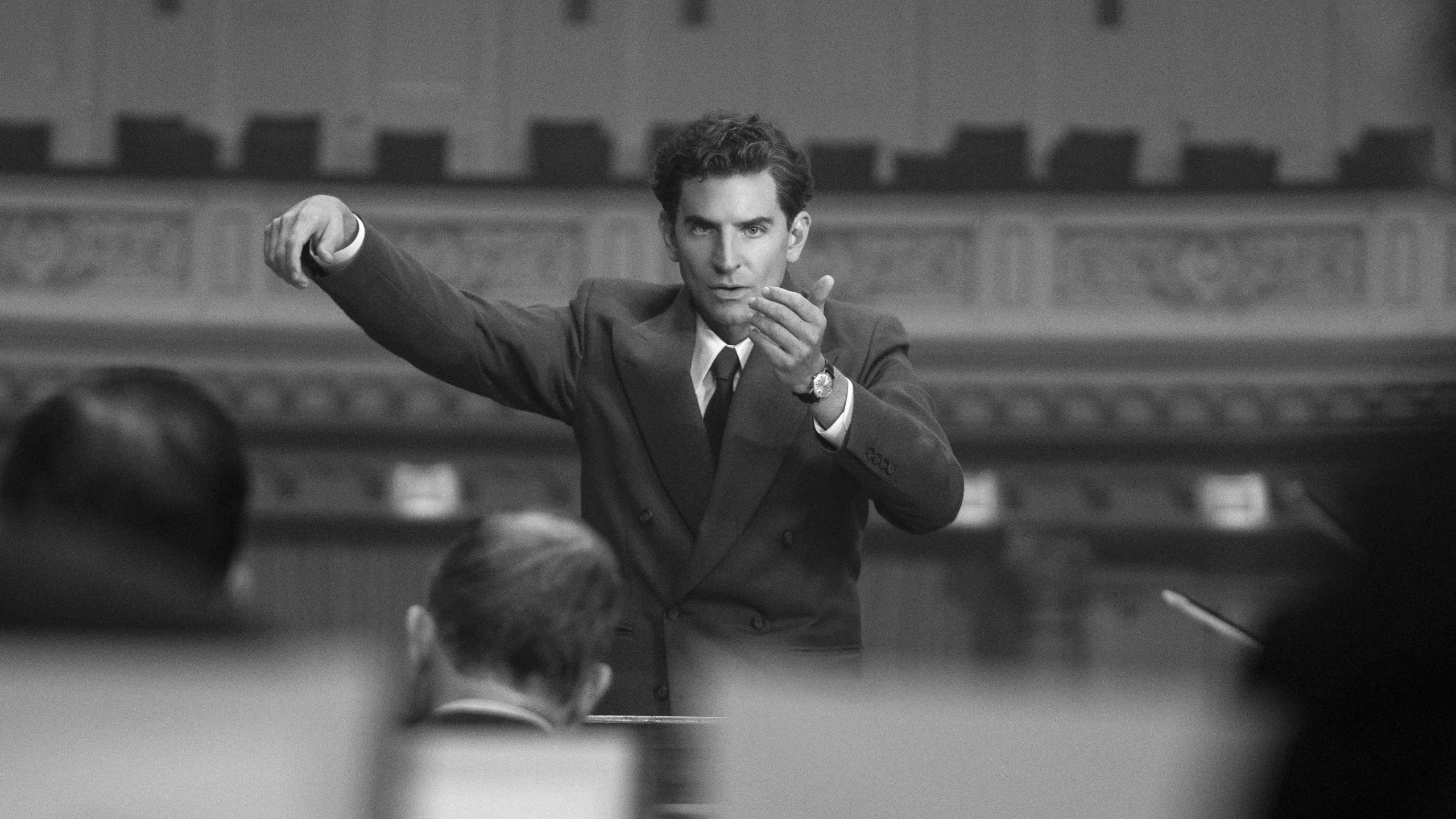
That said: I adored this film, and find it easy to recommend to anyone who is a fan of music, cinema, and 20th Century Americana, because this film nails that aesthetic brilliantly. Cooper is excellent, Mulligan is superb, the supporting cast includes Sarah Silverman (why?) and Maya Hawke and Matt Bomer and nobody puts a step wrong, and behind the camera the work on cinematography, costume design, makeup and hairstyling, sound and music are drawn from the top shelf. Cynics remarking that Maestro is a film “designed to draw the eye of Academy voters” aren’t exactly wrong, because everything about Maestro practically screams “give me an Oscar for the love of God” but seriously who can blame Cooper and his team for trying. A magnum opus composer deserves a magnum opus movie and Maestro delivers on all counts. Highly recommended.

